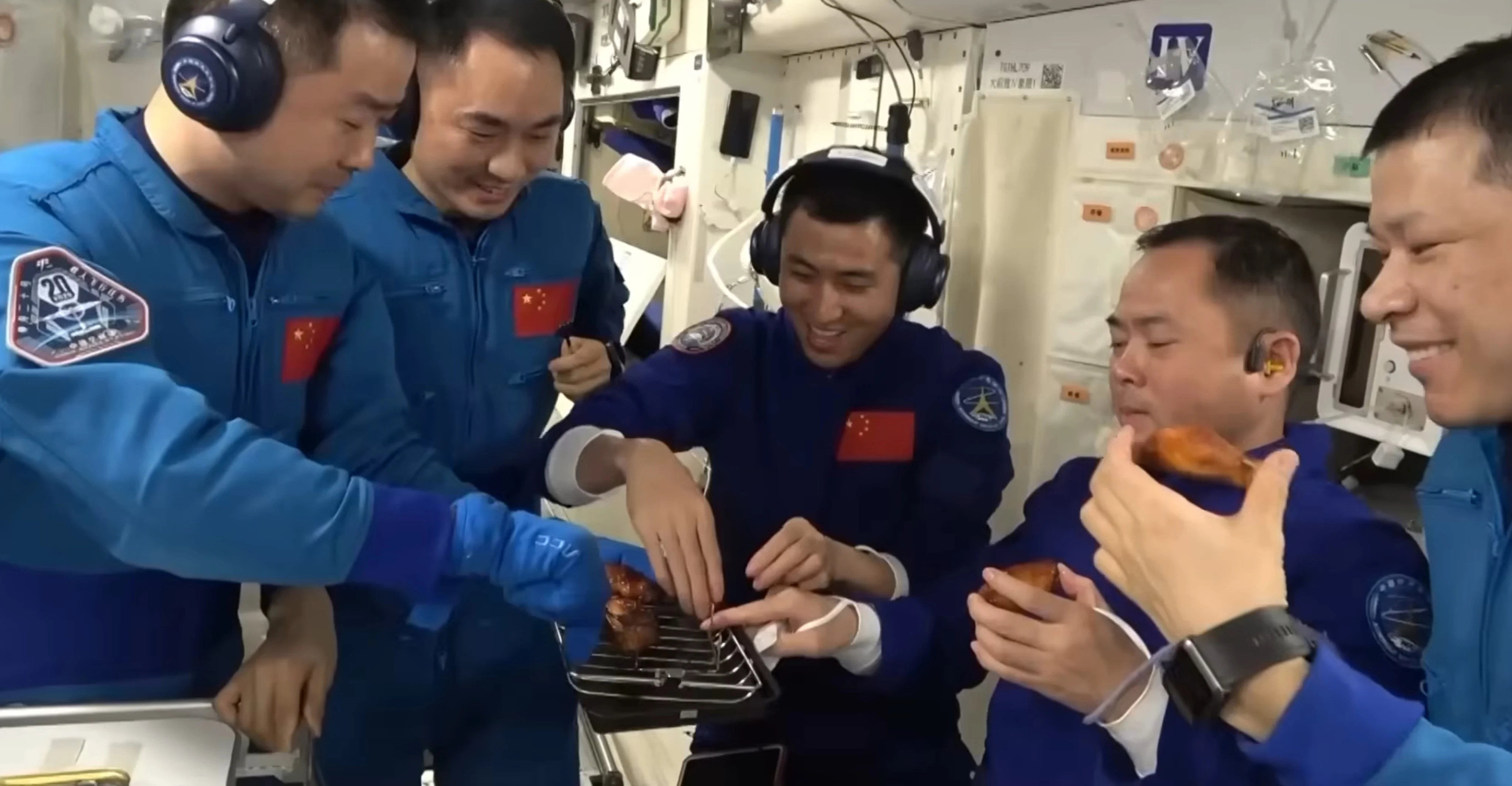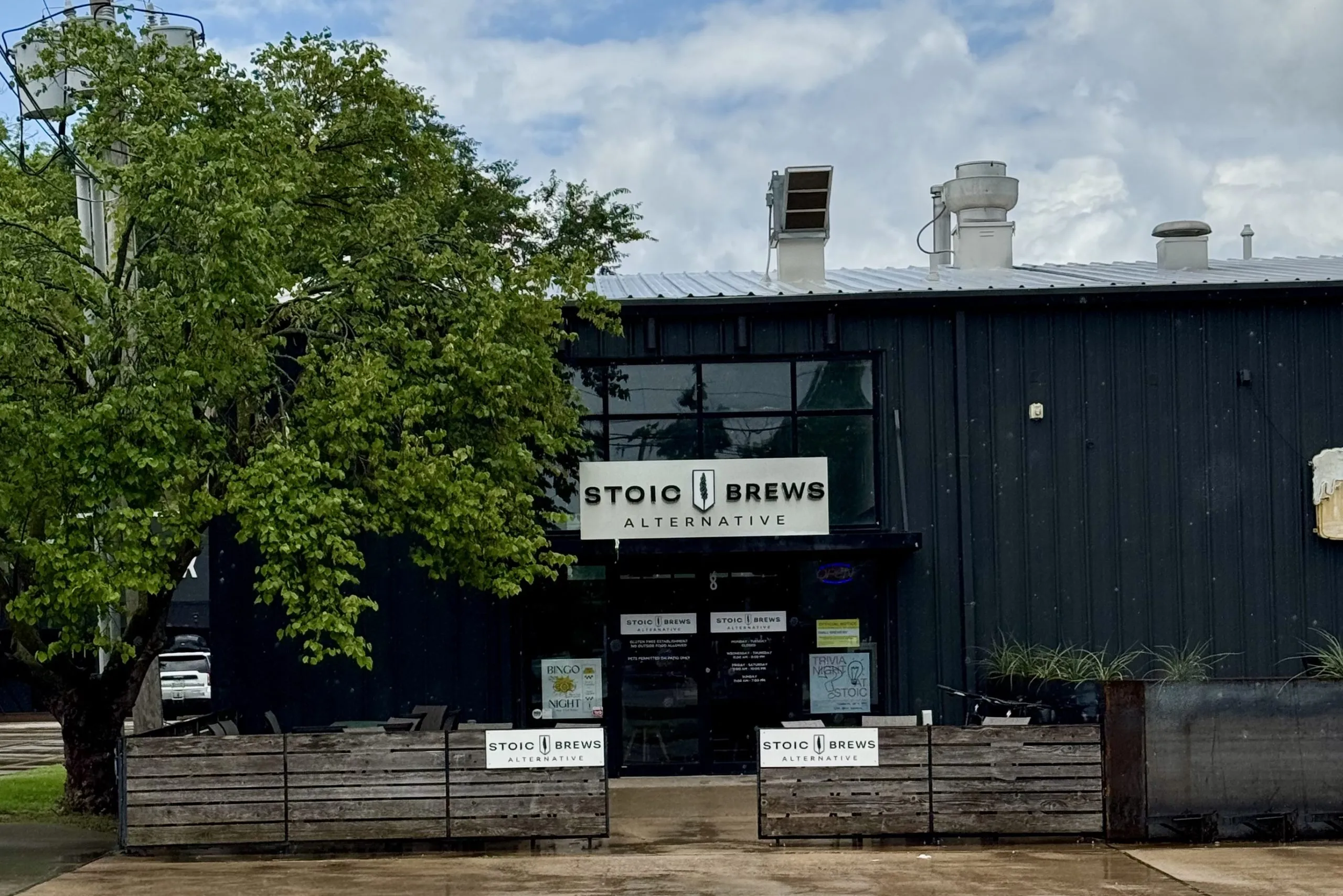Copyright scmp

The delayed return of three astronauts on board China’s space station – while safety checks are carried out after a suspected small debris strike – came hard on the heels of a freshly baked meal of chicken wings and black pepper steak with the incoming crew. In the early hours of Tuesday, state news agency Xinhua reported that the six astronauts shared a meal prepared with a hot air oven brought by the incoming Shenzhou-21 crew, as part of efforts to improve living conditions in orbit. Also on Tuesday, the astronauts held a handover ceremony to transfer the key to the space station to the new crew, ahead of the Shenzhou-20 mission’s planned departure on the following day. However, on Wednesday, the China Manned Space Agency announced that the return flight was postponed because of a suspected strike from small space debris on the spacecraft. According to Xinhua, the historic meal was greeted joyfully by the astronauts, who cooked the marinated chicken wings in the oven for 28 minutes before also using it to cook some steak. The introduction of the oven to the space kitchen is part of a broader effort to enhance the living conditions of astronauts in orbit, with researchers working to enhance the variety, texture, flavour, colour and nutrition of space food, Xinhua reported. “Our motivation is Chinese people’s love for freshly made meals,” said Liu Weibo, research fellow with the China Astronaut Research and Training Centre. “Imagine if astronauts, after living in a relatively closed environment for months, can enjoy the aroma of freshly baked chicken wings and steak – or crispy peanuts and bread they prepared themselves – wouldn’t that bring a sense of happiness?” “It smells, looks and tastes amazing,” said Wu Fei – the incoming mission’s 32-year-old flight engineer and China’s youngest astronaut to be sent to space – as he removed the roasted wings from the oven in a video posted by Xinhua. According to Liu, food preparation in space has to be smoke-free to comply with the station’s emission standards for cooking fumes. The hot air oven is capable of operating for 500 cycles, he added. In a video interview with the official newspaper People’s Daily, Liu said that the oven was the “first in the world” of its kind. “The range hood is installed inside the oven to purify the oxide of carbon produced during cooking within the machine, so that no fumes or odour would be released,” he said. The Shenzhou-21 astronauts have access to a diverse menu of 190 types of food, including cooking and baking fresh vegetables, nuts, cakes and meats to add to the crops that Chinese astronauts have also been growing in orbit. Since the Shenzhou-16 mission, seven types of plants have been grown, including lettuce, cherry tomatoes and sweet potatoes, yielding a total of 4.5kg (10lbs) of fresh produce, according to Xinhua. The experiments on plant substrate cultivation in orbit used recycled substrates, long-lasting controlled-release fertilisers and micropore irrigation technologies to effectively supply water and nutrients in microgravity, it said. Space food has evolved from pastes squeezed from toothpaste-like tubes to freeze-dried and reheatable foods. On the International Space Station (ISS), fresh fruits and vegetables are regularly resupplied by visiting vehicles. In late 2019, astronauts on board the ISS baked chocolate chip cookies in a special zero-gravity oven. While the dough would be ready in around 20 minutes at 150 degrees Celsius (302 Fahrenheit) on Earth, in space the most successful cookies were baked for two hours. In late 2021, a post in a Hong Kong-based Facebook group falsely claimed that astronauts on the Shenzhou-13 mission were having a barbecue with an open fire. Four years later, the fantasy of grilling in space has come true in an oven in the Chinese space station.



